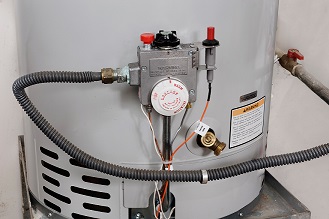01 February 2018
Water Heaters, Soft Water and Carbon Footprints
The Water Quality Association sponsored a survey conducted by Battelle which assessed the carbon footprint of water heaters by evaluating the energy consumption within the home and the resulting greenhouse gas emissions.

For gas storage and instantaneous water heaters, the use of a water softener to eliminate or minimize the hard water/scale forming compounds in water resulted in the efficiency of the water heater remaining constant over the life of the unit. Conversely, the same water heaters using unsoftened (hard) water had a noticeable decrease in efficiency over the testing period. This inefficiency resulted in higher natural gas use. This natural gas savings associated with the use of softened water leads to direct energy and economic savings.
The findings of the study essentially stated that where there are energy efficiency differences, there are also carbon footprint differences. For the traditional storage-type gas water heaters, there was a reduction in carbon footprint of 14.8% over a fifteen-year water heater service life with softened water compared to 26 gpg hard water, when considering both the natural gas used for water heating and the electricity used for water softening.”
For the less common instantaneous water heaters, there was also a reduction in the carbon footprint of 4.4% over a fifteen-year water heater service life.
In the end, the findings concluded, not surprisingly, that water heaters work more efficiently with soft water compared to hard water which translated to both energy and carbon footprint savings.
https://www.wqa.org/Portals/0/WQRF/ResearchStudy_BenefitsOfSoftenedWater_ExecSummary.pdf
Tagged with:
